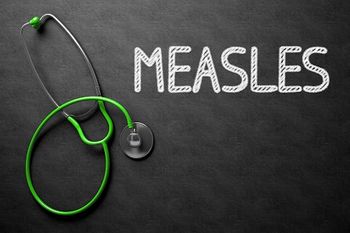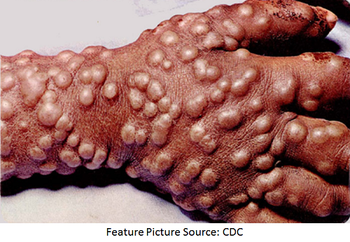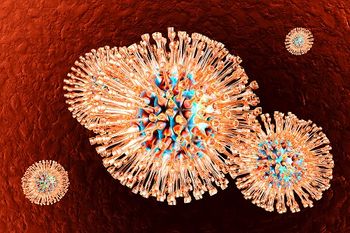
The University of Iowa experienced a large mumps outbreak last year, despite almost 100% adherence to 2-dose measles, mumps, rubella (MMR) vaccine schedule, which begs the question, is it time to start recommending a 3-dose schedule?


The University of Iowa experienced a large mumps outbreak last year, despite almost 100% adherence to 2-dose measles, mumps, rubella (MMR) vaccine schedule, which begs the question, is it time to start recommending a 3-dose schedule?

The CDC offers insight into why a rare exception to the general recommendation of either brand of MenB vaccine had been made for the Rutgers outbreak in 2016.

Despite initial attempts by WHO to eradicate yaws from Asia, several island nations in Asia continue to report active cases of the disease in humans.

In populations with high presumptive immunity to measles, the infection can still spread when there is intense contact between patients or high levels of exposure.

In case you missed them, here are our top 5 articles for the week of April 16, 2017.

Topline results of a recent phase 3 clinical trial have shown that iclaprim is as effective as vancomycin for the treatment of acute bacterial skin and skin structure infections (ABSSSIs).

Although the eradication of smallpox was declared by the World Health Assembly in 1980, the deadly disease might make a comeback. The question is, will we be prepared for it?

David A. Schwartz, MD, MS Hyg, FCAP, clinical professor of pathology at Medical College of Georgia, Augusta University, explains how congenital infection with Zika virus differs from congenital infection with other viruses.

Sometimes the best surveillance tools are found in the gutter, at least according to a new study.

Researchers suggest that patients with eczema should request that their flu shots be administered intramuscularly and not intradermally.

Researchers have found that individuals with cytomegalovirus retinitis have a more advanced HIV infection than individuals with ocular syphilis.

Researchers have discovered that women who experience active genital herpes infection early in their pregnancy may be more likely to have a child who will later be diagnosed with autism spectrum disorder.

Researchers have found that cases of ocular syphilis have been increasing in North Carolina and that the prevalence of ocular syphilis was almost twice as high among HIV-positive patients as among those who were HIV negative or HIV unknown.

Reports of serious consequences from severe streptococcal infections have caused fear among the general public, but is this fear warranted?

A multi-institution research team has found that daptomycin is effective and well-tolerated in children.

A mumps outbreak that began in the country last fall is continuing across the United States. New research suggests that even small populations of unvaccinated individuals may be fueling the outbreak.

Contagion® takes a closer look at how Staphylococcus aureus infections continue to plague professional sports players.

A new study finds that patients with heart failure, obesity, are at increased risk of failing oral antibiotic therapy for skin and soft tissue infections.

Daniel Pilch, PhD, associate professor in the Department of Pharmacology at Rutgers Robert Wood Johnson Medical School, co-founder of TAXIS Pharmaceuticals, and co-author of the study, explains the bactericidal behavior of TXA709, a new drug to treat MRSA infections.

Edmond LaVoie, PhD, professor and chair, Department of Medicinal Chemistry, Ernest Mario School of Pharmacy, Rutgers University, co-founder of TAXIS Pharmaceuticals, and co-author of the study on the new MRSA drug, TXA709, explains how TXA709 targets MRSA differently than other antibiotics.

In case you missed them, here is a round-up of the top 5 articles for the week of March 5, 2017.

NHL teams are taking extra precautions against mumps, as the highly contagious virus continues its spread from team-to-team in yet another outbreak.

A single dose of the antibiotic oritavancin could save patients and health services time and money when treating acute bacterial skin and skin structure infections (ABSSSIs).

Daniel Pilch, PhD, associate professor in the Department of Pharmacology at Rutgers Robert Wood Johnson Medical School, co-founder of TAXIS Pharmaceuticals, and co-author of the study, explains why MRSA is especially dangerous, and the effectiveness of the team’s new drug, TXA079.

Recent studies suggest that post-operative prophylactic antibiotics following a C-section delivery may assist in the prevention of surgical site infections.